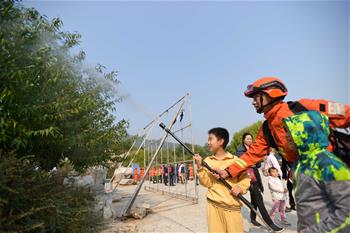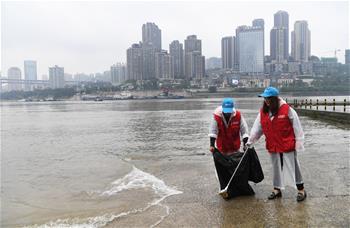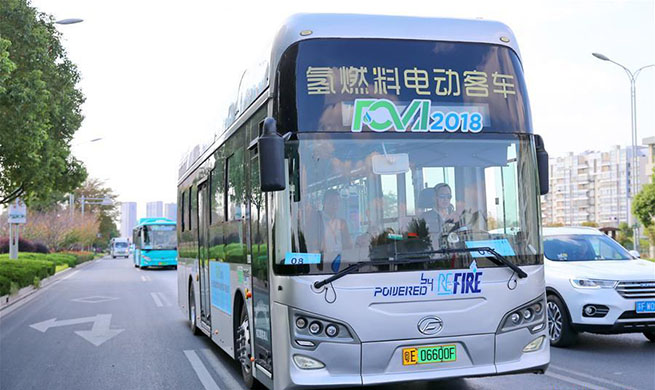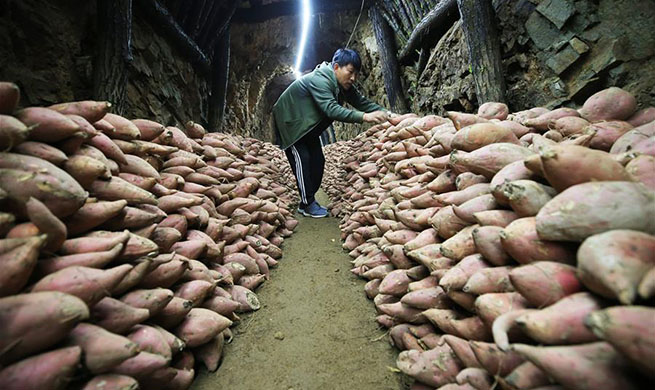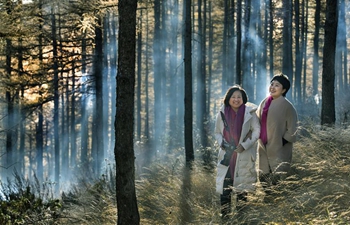by Raul Menchaca
HAVANA, Oct. 13 (Xinhua) -- Brigitte Garcia mills around a leafy Havana street, holding up a handwritten sign with a description of her home: a two-bedroom unit close to the capital's Old Quarter.
Every weekend for the past two years, Garcia shows up at the same spot on Havana's Paseo del Prado, a pedestrian promenade, hoping one of the scores of other people milling about with signs of their own takes an interest in her offer.
Known as the Bolsa de Permuta de Prado, or Prado Exchange, this corner of the city has over the years turned into a kind of improvised venue for real estate transactions.
"I don't want to sell, but to exchange my house, because the real estate brokers put exorbitant prices on the houses and that discourages potential buyers. So you wait and wait but never solve your situation," said Garcia, 37.
But so far, she has had no luck at the Prado Exchange, where she aims to swap her conveniently located two-bedroom for a larger house in a less fashionable district.
She and her husband have two children, one already a teenager, and they want each to have his own bedroom.
Like regular real estate brokers, Cuba's exchange brokers, here called "permuteros," charge a fee based on the price of the transaction.
Nobody knows for sure how or when residents began to gather on Prado to swap homes, but it probably began during the years the government prohibited the sale or purchase of homes.
In November 2011, the government lifted the ban, allowing homeowners to sell their properties for the first time since the 1959 Revolution.
The move spurred an unprecedented real estate market that grew rapidly, fueled by the restoration of bilateral ties between Cuba and the United States during the Barack Obama administration.
Many Cuban-Americans living in the United States were eager to buy property on the island as a second home, to open a business or as an investment. Invariably they skirted the law barring foreigners from buying real estate by purchasing through relatives.
When U.S. President Donald Trump took office, he imposed new restrictions on ties that deflated the booming real estate market.
Still, the local real estate market has given rise to several websites, among them Revolico.com. Managed from abroad, it has almost 50,000 listings for real estate sales and some 5,000 listings for swaps.
However, like most Cubans, Garcia has limited access to the Internet.
"I don't have a laptop and accessing the Internet is not easy for me," said Garcia, though she has placed an ad in Revolico.com.
She prefers not to deal with private real estate management companies, such as La Isla or Casas Cubanas, whose services are reliable, but expensive. The companies are now awaiting a government decision on whether to allow them to continue operating.
In the meantime, she plans to continue coming to the Prado Exchange, where Anay Rodriguez, 50, has become another familiar face.
"You see such a crowd here and that means that the people are finding it difficult to reside where they really want," said Rodriguez, who has been trying for a year to move to a more central location.


